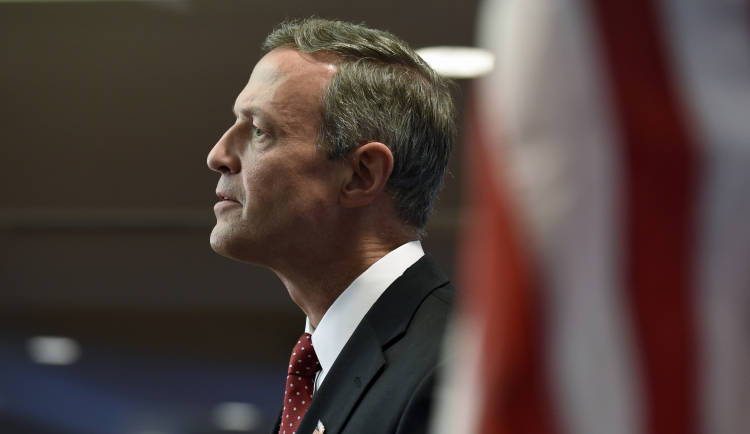Tonight is a huge night in Democratic politics. CNN is hosting the first 2016 Democratic presidential debate, and there’s a chance that we will finally, after all these long months, get a glimpse of a phenomenon that has been long-rumored to exist, but has never actually been observed: O’Malleymentum.
Former Maryland governor Martin O’Malley has been campaigning like a maniac and going on television and releasing all manner of policy papers, and as a reward for his dogged efforts he’s currently polling at around 1 percent nationally – down from his all-time high of 1.7 percent in April. He’s pulling in a comparatively healthy 4 percent in Iowa, but he’s hardly making a blip in New Hampshire. O’Malley is out there killing himself just trying to get noticed, and he’s still getting blown out by Joe Biden, who is quite noticeably not a candidate. He’s even trailing Jim Webb, who is technically a candidate but might not actually be campaigning.
In O’Malley’s vision, the debates are supposed to change this dynamic and finally force America’s Democratic faithful to, if not love him, at least recognize his existence. The one issue that has actually managed to get O’Malley some national attention has been his push to force the Democratic National Committee to agree to hold more primary debates. And he’s quite obviously counting on the debates to propel him out of the Democratic primary basement. “I’ll be the one candidate on that stage that has 15 years of executive experience working on the front lines, working on some pretty difficult issues,” he said this week. “Once the debates happen,” O’Malley told reporters, “people will be able to hear from all of the candidates.” He has to be encouraged by the example set by Carly Fiorina on the Republican side, who climbed into the top tier of Republican candidates based solely on her debate performances.
The problem for O’Malley is that he has so many more factors working against him than Fiorina did. She was able to capitalize on a highly unsettled GOP electorate and had a readymade villain in Donald Trump to contrast herself with. Republicans voters don’t really seem to know what they want at this point and are willing to give pretty much anyone a chance. The Democratic race, on the other hand, has been far more stable. It’s settled into a Hillary Clinton-versus-Bernie Sanders dynamic with Clinton remaining the heavy favorite. Biden is in there as a potential spoiler, but polls consistently show that when you take him out of the equation, most of his support ends up going to Clinton. Reporters are already primed to view the race as a binary Clinton/Sanders affair, so O’Malley not only has to get voters to pay attention, he has to convince the media to view him as something more significant than a longshot also-ran.
He’s also probably done himself a disservice by hyping up the importance of the debates. To the extent that people are talking about the O’Malley candidacy, they’re framing it in terms of the debates and how crucial they are for his chances. And he’s set pretty high expectations for what he has to accomplish on the debate stage. “I feel like the campaign really begins on October 13 in a lot of ways,” he told the Washington Post. He hasn’t left himself any room to turn in the sort of “meh” debate performance that someone like Jeb Bush can get away with. To hear O’Malley talk about it, we’re going to come out of this first debate with a whole new Democratic primary on our hands.
Unfortunately for O’Malley, that’s not something he can do on his own. What he needs more than anything else is largely out of his control – he needs Bernie Sanders to have an epic and unrecoverable collapse. O’Malley’s appeal as a champion of progressive policies is necessarily going to be restrained by Sanders, who already occupies that role and is already the go-to choice for Democrats who are looking for a non-Hillary Plan B. If Sanders comes out of tonight’s debate looking like a credible candidate for the presidency – and I can’t imagine why he wouldn’t – then it’s hard to see how the race changes in O’Malley’s favor.
The weakness of the O’Malley candidacy is puzzling, given that he’s not the sort of manifestly ridiculous candidate who typically struggles to pull in more than 1 percent of the vote. He’s a two-term governor of a reliably blue state who had success implementing a progressive policy agenda and should, at least on paper, be an attractive option for Democratic voters. He’s been aggressive in pushing back against Republican policy arguments and has laid out some strong policy recommendations on climate change, Social Security, and other things we dirty liberal types tend to get excited about. So, in theory, there should be a constituency somewhere for Martin O’Malley. He just has to turn in the debate performance of his life and prove to the world that O’Malleymentum is real.

